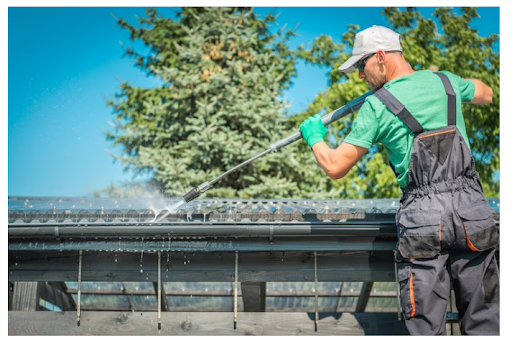Circumcision surgery for adults is a procedure that involves the removal of the foreskin from the penis. It is important to take certain precautions before, during, and after the surgery to ensure a smooth and successful outcome. This article outlines key precautions patients should consider for adult circumcision surgery.
H2- Precautions to Take Before Circumcision Surgery for Adults
Adult circumcision surgery requires careful preparation to ensure a safe and successful outcome. By following the precautions, men can enhance their chances of an easy and quick recovery from adult circumcision surgery. Always consult a qualified healthcare professional to address any concerns or questions specific to your situation.
Consultation with a Healthcare Professional
Before scheduling a circumcision surgery, consult a qualified healthcare professional, such as a urologist or a general surgeon. They will assess your medical history, evaluate potential risks, and provide tailored guidance.
Understanding the Procedure
It is important to understand adult circumcision surgery, including the benefits, potential risks, and expected outcomes. Discuss any concerns or questions with your healthcare professional to alleviate anxiety and make an informed decision.
Medical Evaluation
Undergoing an extensive adult circumcision surgery medical evaluation is essential. This evaluation includes a physical examination, blood tests, and other relevant diagnostic procedures to ensure you are healthy and can tolerate the surgery.
Informing the Surgeon About Medications
Inform your healthcare professional and surgeon about your medications, supplements, or herbal remedies. They will advise whether you need to adjust or temporarily discontinue medications that may interfere with the surgery or the healing process.
Eating and Drinking Instructions
Follow the drinking and eating instructions provided by the best adult circumcision surgeon. It would be best to refrain from eating anything six hours before the surgery to minimize the risk of complications during anesthesia.
Caring for the Hygiene is Vital
Properly clean the penis area to reduce the risk of infection. Your healthcare professional may provide specific instructions on preparing for surgery regarding hygiene and also by showing circumcision healing stages pictures.
Arrange Transportation and Support
Since adult circumcision surgery often requires anesthesia, arranging transportation to and from the surgical facility is advisable. Additionally, having someone available to support and assist during the initial recovery period is beneficial.
H3- What Post-Adult Circumcision Surgery Tips Should Patients Follow?
After undergoing surgery at medical facilities like Circumcision Center, following proper care and hygiene practices is important to ensure a smooth recovery and minimize the risk of complications.
Follow Post-Operative Instructions
Please pay close attention to the instructions provided by your healthcare professional as they ensure proper wound healing. These instructions may include guidelines for wound care, medication usage, and activity restrictions.
Keep the Area Clean
Maintain good hygiene by gently cleaning the genital area with mild soap and water. Avoid harsh chemicals, fragrances, or alcohol-based products, as they irritate the incision site. Pat the area dry with a clean towel after washing.
Use Appropriate Dressings
It is important to change dressings as directed, keeping the incision area clean and dry. Contact your healthcare provider immediately if you notice any excessive bleeding, foul odor, or signs of infection.
Manage Pain and Discomfort
It is common to experience pain and discomfort following adult circumcision surgery. Take prescribed pain medications as approved by a healthcare professional. Applying a cold compress or ice pack to the area for short periods may also help reduce swelling and discomfort.
Wear Loose-Fitting Clothing
Wear loose-fitting underwear and clothing to avoid unnecessary friction and pressure on the incision site during the healing process. Loose clothing allows for better airflow and reduces the risk of irritation.
Avoid Strenuous Activities
Engaging in strenuous activities, such as heavy lifting, vigorous exercise, or sexual intercourse, should be avoided during the initial healing period. These activities can increase the risk of bleeding, delayed healing, and infection.
Maintain Proper Nutrition and Hydration
Eating a well-balanced diet and staying hydrated can promote healing and support your immune system. Consume nutritious foods rich in vitamins, minerals, and protein. Drinking an adequate amount of water helps flush out toxins.
Patients should take precautions for pre- and post-circumcision surgery for adults to ensure their penis heals perfectly without complications.
Below are three questions to further enhance precautions taken before and after the surgery.
H4- Frequently Asked Questions
What precautions should be taken during circumcision?
During circumcision surgery for adults, it is important to ensure a sterile surgical environment, administer proper anesthesia, and handle surgical instruments with care to minimize the risk of infection and complications.
How can I make my circumcision heal faster?
Patients should follow proper wound care instructions from their healthcare professional, maintain good hygiene, avoid strenuous activities, and eat a healthy diet to support healing.
What Cannot eat after circumcision?
After circumcision, it is generally recommended to avoid consuming spicy foods, alcohol, and foods that are known to irritate or have the potential to delay healing, such as acidic or excessively salty foods.










